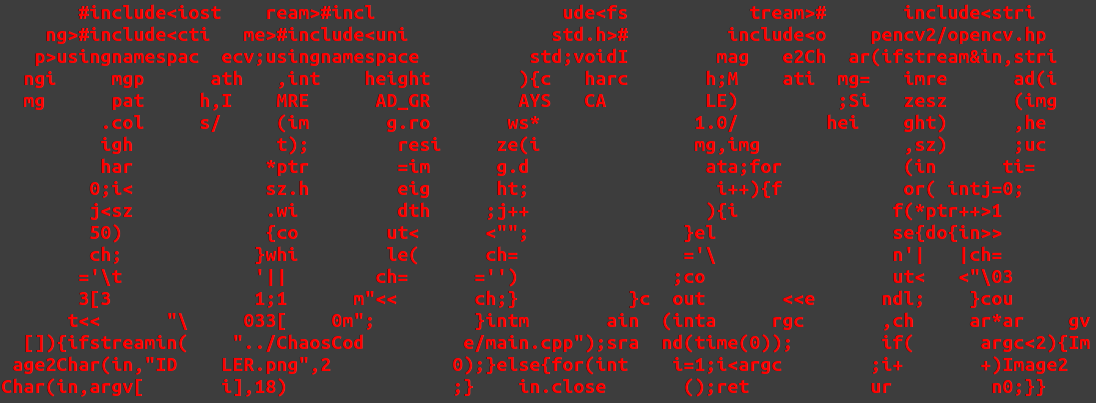Five typical Numeric algorithm
In <stl_numeric.h>
These algorithms all provide two function version, the one is naive/nature operation, and the other is user-defined operation passed by functor.
STL REQUIRES which you can ignore, when read source code. So I just commented out these statements.
__VALUE_TYPE which can find in “stl_iterator_base.h”
Accumulate
If you want to get the sum of [first, last), you should set init with zero.1
2
3
4
5
6
7
8
9
10
11
12
13
14
15
16
17
18
19template <class _InputIterator, class _Tp>
_Tp accumulate(_InputIterator __first, _InputIterator __last, _Tp __init)
{
//__STL_REQUIRES(_InputIterator, _InputIterator);
for ( ; __first != __last; ++__first)
__init = __init + *__first;
return __init;
}
template <class _InputIterator, class _Tp, class _BinaryOperation>
_Tp accumulate(_InputIterator __first, _InputIterator __last, _Tp __init,
_BinaryOperation __binary_op)
{
//__STL_REQUIRES(_InputIterator, _InputIterator);
for ( ; __first != __last; ++__first)
__init = __binary_op(__init, *__first);
return __init;
}
Inner Product
In the second version, you can also define + and * when you calculate inner product.1
2
3
4
5
6
7
8
9
10
11
12
13
14
15
16
17
18
19
20
21
22
23
24
25template <class _InputIterator1, class _InputIterator2, class _Tp>
_Tp inner_product(_InputIterator1 __first1, _InputIterator1 __last1,
_InputIterator2 __first2, _Tp __init)
{
// __STL_REQUIRES(_InputIterator2, _InputIterator);
// __STL_REQUIRES(_InputIterator2, _InputIterator);
for ( ; __first1 != __last1; ++__first1, ++__first2)
__init = __init + (*__first1 * *__first2);
return __init;
}
template <class _InputIterator1, class _InputIterator2, class _Tp,
class _BinaryOperation1, class _BinaryOperation2>
_Tp inner_product(_InputIterator1 __first1, _InputIterator1 __last1,
_InputIterator2 __first2, _Tp __init,
_BinaryOperation1 __binary_op1,
_BinaryOperation2 __binary_op2)
{
// __STL_REQUIRES(_InputIterator2, _InputIterator);
// __STL_REQUIRES(_InputIterator2, _InputIterator);
for ( ; __first1 != __last1; ++__first1, ++__first2)
__init = __binary_op1(__init, __binary_op2(*__first1, *__first2));
return __init;
}
Partial Sum
This function return local sum, e.g.1
2
3
4v[0] = v[0]
v[1] = v[0] + v[1]
v[2] = v[0] + v[1] + v[2]
...
return the next of last one1
2
3
4
5
6
7
8
9
10
11
12
13
14
15
16
17
18
19
20
21
22
23
24
25
26
27
28
29
30
31
32
33
34
35
36
37
38
39
40
41
42
43
44
45
46
47
48
49
50
51
52template <class _InputIterator, class _OutputIterator, class _Tp>
_OutputIterator
__partial_sum(_InputIterator __first, _InputIterator __last,
_OutputIterator __result, _Tp*)
{
_Tp __value = *__first;
while (++__first != __last) {
__value = __value + *__first;
*++__result = __value;
}
return ++__result;
}
template <class _InputIterator, class _OutputIterator>
_OutputIterator
partial_sum(_InputIterator __first, _InputIterator __last,
_OutputIterator __result)
{
// __STL_REQUIRES(_InputIterator, _InputIterator);
// __STL_REQUIRES(_OutputIterator, _OutputIterator);
if (__first == __last) return __result;
*__result = *__first;
return __partial_sum(__first, __last, __result, __VALUE_TYPE(__first));
}
template <class _InputIterator, class _OutputIterator, class _Tp,
class _BinaryOperation>
_OutputIterator
__partial_sum(_InputIterator __first, _InputIterator __last,
_OutputIterator __result, _Tp*, _BinaryOperation __binary_op)
{
_Tp __value = *__first;
while (++__first != __last) {
__value = __binary_op(__value, *__first);
*++__result = __value;
}
return ++__result;
}
template <class _InputIterator, class _OutputIterator, class _BinaryOperation>
_OutputIterator
partial_sum(_InputIterator __first, _InputIterator __last,
_OutputIterator __result, _BinaryOperation __binary_op)
{
// __STL_REQUIRES(_InputIterator, _InputIterator);
// __STL_REQUIRES(_OutputIterator, _OutputIterator);
if (__first == __last) return __result;
*__result = *__first;
return __partial_sum(__first, __last, __result, __VALUE_TYPE(__first),
__binary_op);
}
Adjacent Difference
This function return difference between adjacent elements, e.g.
1 | v[0] = v[1] - v[0] |
return the next of last one
1 | template <class _InputIterator, class _OutputIterator, class _Tp> |
Power
1 | template <class _Tp, class _Integer, class _MonoidOperation> |
Additional
iota is not part of the C++ standard. It is an extension.
Itoa
The function can generate a sequence which in ascending order.1
2
3
4
5
6
7
8
9template <class _ForwardIter, class _Tp>
void
iota(_ForwardIter __first, _ForwardIter __last, _Tp __value)
{
// __STL_REQUIRES(_ForwardIter, _Mutable_ForwardIterator);
// __STL_CONVERTIBLE(_Tp, typename iterator_traits<_ForwardIter>::value_type);
while (__first != __last)
*__first++ = __value++;
}
